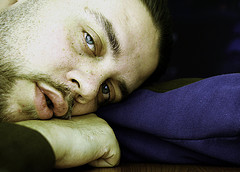Know what to do if You Get Sick or Injured while Traveling
2 January 2012
We’ve written about how to check the traveler’s health reports for your destination in advance of leaving for your trip, along with ways to stay health on your trip: preventing insect bites, being cautious about the food and water you consume, etc. We’ve also recommended seeing your doctor before you travel, but what should you do if you become sick or get injured on your trip?
If you are injured or become ill on a trip, you may be on a plane, a ship, or in a foreign country when your health crisis strikes. If you are unfamiliar with the area in which you are traveling, or unfamiliar with the local language, it can be tricky to find a medical care provider who can help, so it’s important for travelers to understand some basic rules and steps to follow.
4 Reasons to seek medical help immediately
The following are good reasons to seek medical help right away. If you, or someone traveling with you, experiences any of the following, seek medical attention as soon as possible:
- A bite or scratch from an animal, reptile, or bird
- A car accident – even if you think you feel OK after
- A sexual assault or physical attack
- A fever over 102 degrees Fahrenheit with diarrhea or diarrhea spotted with blood
If you become sick on an airplane or cruise ship
The following steps should be followed if you, or someone traveling with you, becomes sick while traveling on an airplane or in a cruise ship:
- Tell a flight attendant or crew member as soon as possible so they can alert others and get help.
- If there is a doctor on the plane, you may be examined by that person; cruse ships typically have a small medical facility and you may be treated there.
- If you are coughing, understand that you may be asked to wear a surgical mask to cover your mouth and nose to avoid infecting others.
- If the illness is serious, medical professionals and/or the crew may move you to a different part of the plane and may redirect the plane so you can receive medical care. On a cruise, you may be evacuated off the ship to seek treatment on land.
If you are treated in a medical facility that is not contracted by your health insurance, you may be responsible for 100% of the costs. If you have travel insurance with medical coverage, you may be reimbursed for those costs or your travel insurance company may make arrangements to pay the hospital directly.
If you are evacuated off the cruise ship, it will typically be at your own expense, so having medical evacuation coverage will help in this situation because your travel assistance services representatives will coordinate and arrange for the evacuation.
Locating a health care professional abroad
If you have to locate a health care provider abroad, you must consider the local language of the health care provider and transportation. There are a few sources that can help travelers locate medical care abroad, including:
- The International Society of Travel Medicine (ISTM) maintains a directory of health care professionals with travel medicine expertise in nearly 50 countries.
- The American Society of Tropical Medicine and Hygiene (ASTMH) maintains a list of clinicians outside the U.S.. Traveler in need of specialized post-travel care may also find the directory helpful for locating tropical medicine experts back home.
- Travelers can also search the Joint Commission International website for accredited health care facilities at their destination.
As you may have noticed, however, each of these require some effort and time which can be difficult if the traveler is experiencing a current health emergency. It would be recommended that the traveler research the health care options using the above sources prior to leaving on their trip in order to be able to react quickly to a medical emergency on the trip.
Arranging and paying for health care or medical evacuations
If you don’t have travel insurance, the first step is to locate the closest US Embassy, which you can do at www.usembassy.gov. If you do have travel insurance, the first step is to contact the toll-free hotline and speak with a travel assistance services representative who can tell you where the closest medical facility is, contact your family and others, and follow up to ensure you are getting the care you need.
If you need a medical evacuation, contacting the U.S. Embassy may be useful for locating an evacuation provider, but the cost for the evacuation will be up to you. It is in this situation that travel insurance with medical evacuation coverage can be invaluable because they not only arrange for and coordinate the evacuation, they also pay for it and handle your transportation back home when you’ve recovered.
Damian Tysdal is the founder of CoverTrip, and is a licensed agent for travel insurance (MA 1883287). He believes travel insurance should be easier to understand, and started the first travel insurance blog in 2006.

